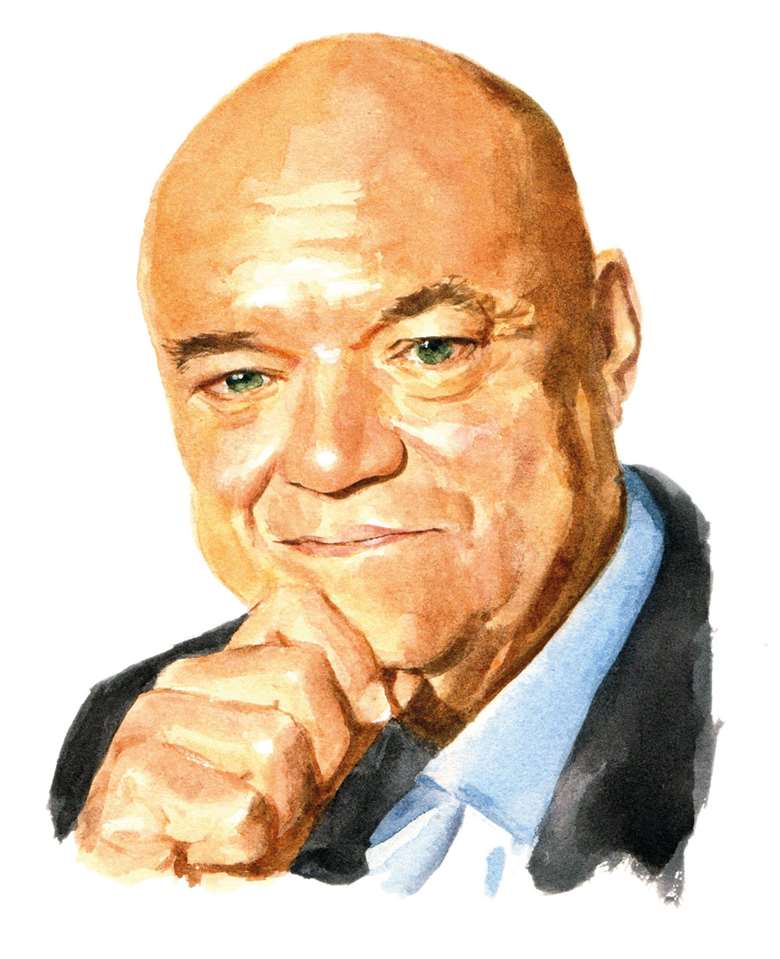Sir Nicholas Kenyon | My Music: ‘We desperately need performance to bring music to life, and the last year has proved that so vividly’
Tuesday, June 8, 2021
Sir Nicholas Kenyon The author, broadcaster and Barbican Centre Managing Director on the impact of music on societies past and present

My life of music was formed by two not unfamiliar experiences: church choir, and Gilbert and Sullivan. Brought up a Catholic, we sang the great polyphony of the past, and that gave me an enduring love of Byrd, Palestrina and Victoria. As a choirboy I had the chance to go to a summer school at Westminster Cathedral, where we were visited by the great George Malcolm who became an inspiration both for his choral conducting (his Victoria Tenebrae Responsories with their throaty sound are so intense even today) and his dazzling harpsichord-playing. We were taken to a Prom rehearsal where I first heard Jacqueline du Pré play the Elgar Cello Concerto – a revelation. I quickly took up the cello, but as a bit of an individualist I transferred to the bassoon in my local youth orchestra. As a treble at school, I sang leading ladies in the annual G&S productions: Elsie in The Yeomen of the Guard, Patience in Patience and Iolanthe in Iolanthe: the early and final peak of my performing career!
‘For all the pain of lockdown, this period has enabled us to think through our programme and innovate’
It was that strong belief in performance, along with the knowledge that so many people were doing it far better than me, which led me towards what I wanted to do. Writing about music and reviewing concerts, especially when the early music revival was just breaking through, was a huge education. These were the days when Chris Hogwood and Trevor Pinnock, Andrew Parrott and Roger Norrington, and so many others were discovering new ways to perform old music and it was a thrilling time of discovery. Not so many music critics of the day wanted to engage with those strange sounds, so there was flourishing freelance activity for reviewers! That led me on to programming and to planning concerts, opening people’s ears to neglected and adventurous repertory at the Proms and elsewhere. Being able to show that Rameau was among the great composers, that Szymanowski and Kurt Weill were the equal of other 20th-century masters, and literally hundreds of new works: this was a hugely rewarding time.
Part of what my book The Life of Music tries to reflect is the impact of music on life across the centuries, which has been interrupted by the pandemic in a way that not even war has achieved. I started the book long before lockdown, with the hope of demonstrating that music really is about performance, not just about the notes on the page – and how timely that lesson has proved … We desperately need performance to bring music to life, and the last year has proved that so vividly. It’s been so frustrating, and so disappointing for artists and audiences alike, that the Barbican Centre has had to be closed for so long. Now, with all being well, May will be the month we reopen to the public and start again to present a programme for distanced audiences.
For all the pain of lockdown, this period has enabled us to think through our programme and innovate. So our series ‘Live from the Barbican’ has been devised by our Head of Music, Huw Humphreys, and his team as a newly imagined experience: not just a camera pointed at a stage, but a rethought format that works both for a digital audience and for the audience in the hall. The current series brings together classical and non-classical artists in a celebration of the diverse music that the Barbican does best, formatted for all audiences including the ever-expanding reach which digital streaming has offered us. We know that as the recovery gathers pace, we will all be thirsting again for great live artistic experiences; at the Barbican we will be ready to provide them. Join us!
Nicholas Kenyon is Managing Director of the Barbican Centre, London, and was Director of the BBC Proms 1996-2007. His new book The Life of Music has just been published by Yale University Press
This article originally appeared in the May 2021 issue of Gramophone. Never miss an issue – subscribe today














